#VolvoCars
Volvo Ending Sedan/Wagon Sales in UK, Could North America Be Next?
Volvo Cars is suspending sedan sales in the United Kingdom and it looks like North America could be next if we consider the brand’s rationale. The company has said its sales volume has skewed so heavily toward SUVs and crossovers that it doesn’t make good sense to offer anything else.
Volvo Patents New Tool to Combat Car Thieves
Volvo has reportedly filed a new patent with the United States Patent and Trademark Office (USPTO) that would add digital protections designed to prevent modern car thieves from doing what they do. While the golden age of car thievery typically involved criminals skulking around in the dark to find an isolated model they could jimmy open and then hot-wire, today’s thieves tend to linger in crowded parking areas our outside homes with computers that scan and capture the codes being transmitted remotely from the key fob to the car.
Volvo Revives Subscription Scheme for California
Volvo Cars is reintroducing its subscription model in California, despite having previously gotten in trouble for violating the state's franchise laws. While the automotive industry has attempted to hype the premise for years, vehicle subscription services haven't gotten much love from consumers and tend to exist in a legal gray zone that makes regulators uneasy. We even bashed them years ago for being one of the most expensive ways to get into an automobile, with only a modicum of features to help rationalize the added expenditure.
Volvo Announces IPO, Polestar Does SPAC Merger
Volvo Cars has confirmed months of speculation by announcing that it’s planning to go public on NASDAQ Stockholm. On Monday, the automaker stated that it would be seeking to raise 25 billion Swedish kronor (nearly $2.9 billion USD) via the selling of new shares as a way to fast-track its electrification plans. Those include ensuring half its annual volume being represented by EVs and transitioning the majority of its sales stemming from online orders by 2025.
While the targeted IPO valuation is unknown, prior information coming from Zhejiang Geely Holding Group (Volvo’s Chinese parent company) suggested it was aiming for something in the neighborhood of $20 billion. We’ve also learned that the collaboratively owned Polestar would also be going public, except it will be using the always sketchy special-purpose-acquisition-company merger to help pump the stock.
Volvo Buying Itself Out of Chinese Joint Venture
Volvo Cars is plotting to buy out parent company Zhejiang Geely Holding and free itself of its Chinese joint venture. The Swedish (currently Swedish-Chinese) manufacturer has been hinting at the prospect of going public with an IPO, which most analysts believe would be bolstered by creating some distance from Geely.
While the Chinese Communist Party has ended mandates requiring electric vehicle firms from entering into joint ventures with established domestic businesses, the rule still exists for traditional automakers. However, the general assumption is that most will attempt to regain full ownership of their Chinese assets when the law is lifted next year. But critics are cautioning that the nation is under no obligation to maintain any commitment to foreign entities once they’ve split with their local partners.
Report: Volvo Dealers Respond Negatively to Digital Retail Strategy
Last week, we discussed Volvo Cars’ plan to transition to an online sales model as a larger quotient of its product becomes electrically driven. As luck would have it, the concept hasn’t been a runaway success with auto retailers. Vehicles becoming increasingly digitized, combined with the unparalleled consumer access offered by the internet, has made numerous manufacturers wonder why the dealership role couldn’t be diminished. After all, Tesla has done alright without a traditional sales network.
But Tesla didn’t have a gross of existing showrooms ready to make a fuss. Volvo has nearly 300 and dealerships are reportedly voicing their concerns as the manufacturer does what it can to assuage fears about the possibility of their being put out of businesses in the coming years.
Volvo Cars Now Following Lynk & Co Playbook, Introduces C40 Recharge
There was a time when practically any automaker could earn a few brownie points by proclaiming that they too would be transitioning toward becoming an electric-only manufacturer by [insert year here]. But times have changed and EVs have been around long enough for consumers to expect more than a promise that there would someday be more of them. There’s also a sense that regulations (stemming largely from Europe and China) are forcing the issue to a point where practically all automakers will eventually have to totally seize electrification or be forced to hand over vast amounts of money to governments or their chief rivals as a way to “offset” carbon emissions — making corporate promises far less impressive than they otherwise could have been.
Volvo, which was at the forefront of novel combustion powertrain solutions a few years ago, has since committed itself toward wholly embracing electrification under the tutelage of Geely Automotive. The Swedish-Chinese brand has made repeated announcements suggesting just how important EVs are for its future. On Tuesday, the company announced that it had officially committed itself to going fully electric by 2030 and showcased a new model while also vowing to make future sales online only.
Geely Nixes Volvo Merger, Volvo CEO Explains
Despite having already having Volvo Cars as one of its many subsidiaries, China’s Geely signaled roughly a year ago that it wanted to merge with the brand as part of its strategy to expand globally. Plans changed on this week when the company announced that the duo will be retaining their independent corporate structures, though they will continue working on a joint development program for electric vehicles.
This means more backing for the Lynk & Co. brand, a technology-focused joint venture Geely launched with Volvo in 2016. Lynk is hoping to bridge the gap between traditional vehicle sales and subscription-based models, while also pioneering telematics and other connected services that look like an invasion of privacy to some and a technological breakthrough to others. Regardless, the industry as a whole seems convinced this represents the evolution of the automobile and a stable source of revenue for companies capable of monetizing large amounts of data — often with the help of the world’s largest technology firms.
Chip Shortage Expands, GM Forced to Idle Factories
While the Great Semiconductor Shortage of 2021 probably isn’t going to the defining historical topic of the modern era, it’s presently doing a number on the automotive industry. Volkswagen Group, Ford, Mazda, Nissan, Subaru Corp., Toyota, and Stellantis have all reported the need to scale back production this year.
On Wednesday, General Motors said that it would also have to handle the issue by closing down four plants next week. Affected sites include Kansas’ Fairfax Assembly, Ontario’s CAMI Assembly, and Mexico’s San Luis Potosí Assembly. GM Korea will likewise be operating Bupyeong 2 at half capacity, according to Reuters.
Volvo CEO Says Governments Should Just Ban Gasoline Powered Cars
Volvo Cars’ chief executive, Håkan Samuelsson, believes a ban on gasoline-driven vehicles would be a more effective way to force groups to go electric than continuing to offer subsidies on battery-powered automobiles. The announcement comes as part of the Financial Times’ “Future of the Car Summit,” where Samuelsson will proclaim the internal combustion engine “a technology of the past.”
In related news, Volvo Cars is also in negotiations to merge with China’s Geely Automotive and has renewed its commitment toward becoming an electric-only brand by 2030. The latter issue will also be brought up during Wednesday’s Car Summit, with the CEO praising the United Kingdom’s promise to eliminate the sale of new gasoline and diesel cars that same year.
What miraculously convenient timing.
Volvo XC40 Recharge Electric Pricing Announced at $54,985
Making good on its promise that the future will be electric, Volvo has readied the XC40 Recharge P8 compact crossover for a spring debut. Though it doesn’t seem to have secured an idyllic price tag. The electrified XC40 starts at $54,985, including a $995 destination fee, which makes it around $20,000 dearer than the gasoline model. That’s a lot of dough for such a small vehicle, even after federal (and potentially state) tax incentives shave a few thousand off the top. Surely customers will be getting a top-shelf automobile on par with the Tesla Model 3 Performance, if not better, to help that MSRP make some sense. But the math just isn’t working out in Volvo’s favor based on the specs given. Model 3 destroys it in every metric that isn’t headroom because it is not a crossover.
While the XC40 Recharge comes in below its larger European counterparts on price, and often by a fairly narrow margin, its maximum range is an EPA-estimated 208 miles. That places it within striking distance of the bigger electrics manufactured by Audi or Jaguar. But Tesla will happily sell customers a Model Y boasting 326 miles of range for about $10,000 less than the XC40. The only downside is that the American brand’s sales success has already exhausted its allotted federal tax credits, meaning you’ll get more money from the government if you buy something Swedish-Chinese.
China's Geely Adjusts End-of-year Outlook
China’s Geely Automobile Holdings reported a first-half net profit drop of 43 percent on Monday, a tumble that forced it to reduce end-of-year targets. As you may have expected, the coronavirus was named as the biggest obstacle it had to overcome, especially in its home country. That left Geely (parent to Volvo, Lotus, Proton, Lynk & Co, Emerald Automotive, London EV and more) revising 2020 volume estimates by 6 percent to 1.32 million vehicles against the 1.36 million deliveries it enjoyed through 2019.
While enduring a bad financial year in 2020 is hardly breaking news for any major automotive manufacturer, Geely is one of many Chinese firms with global aspirations. Its role as Daimler’s second-largest stakeholder and ownership of Volvo Cars (with which it is planning a full merger) arguably makes it the corporation that’s closest to achieving that goal, too. Yet the current economic and geopolitical situation served to undermine its ultimate goal of becoming Asia’s answer to Volkswagen Group.
Gas War: California Finalizes Side Deal With Automakers
The California Air Resources Board (CARB) made a slew of announcements on Monday regarding what types of vehicles will be allowed within the confines of its borders. These included everything from proclaiming aftermarket parts would be subject to a faster approval (or denial) process in the future, to announcing a joint initiative with 15 other states (most of whom joined CA in opposing the fuel efficiency rollback), to accelerating the implementation of electrified buses and trucks.
It also confirmed that California has finalized binding agreements with several automakers to cut vehicle emissions. BMW, Ford Motor Co., Honda Motor Co., and Volkswagen Group all entered into a voluntary agreement with the Golden State to adhere to Obama-era emission mandates last summer. While this prompted the U.S. Justice Department to launch an antitrust investigation into the deal, no action was taken. CARB said those companies — and some of their friends — made a binding commitment to California this month and will commit to its new emission targets, rather than the revised quotas set by the federal government.
Geely Still Reportedly Bent on World Domination
China’s Zhejiang Geely Holding Group has its fingers in a lot of pies. Having purchased Volvo Cars from Ford a decade ago for $1.8 billion (a fraction of the price the Blue Oval paid), the brand has focused on scooping up troubled brands with global appeal or creating its own. In 2017, Geely purchased majority stakes in Malaysia-based Proton and UK-based Lotus Cars while attempting to turn its own Lynk & Co into a global brand.
Those are supplemental to its cadre of Asia-focused subsidiaries but no less important to its broader aspirations.
Geely has been exceptionally clear that its ultimate goal is to increase its presence around the world while improving its production capabilities. Its latest strategy involves utilizing new platforms developed for Volvo (which was already sharing architecture with Lynk) for vehicles manufactured in Asia under the Proton banner.
Maybe Next Year: Volvo Pushes Back Sales Targets to 2021
Volvo Cars will be unable to reach its global volume target of 800,000 vehicles this year. Considering everything that has — or hasn’t — happened in 2020, any automaker that ends the period moving more metal than they did in 2019 should probably have a statue erected in front of their headquarters celebrating a major industrial achievement.
Volvo sold 705,452 units the last time our Earth went around the sun, forcing it to face the music when considering goals in what CEO Håkan Samuelsson calls the “corona year.”



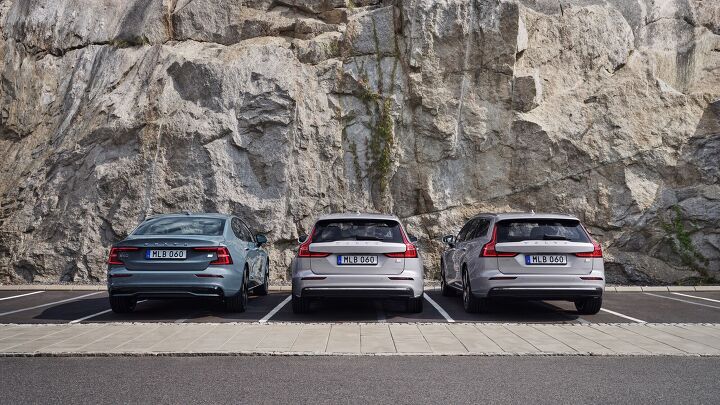
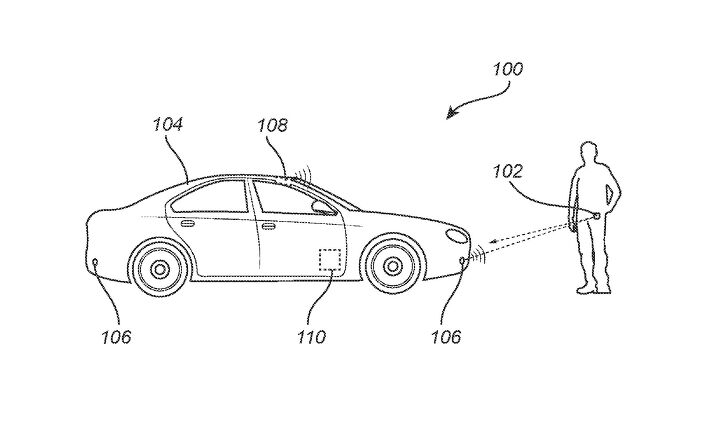

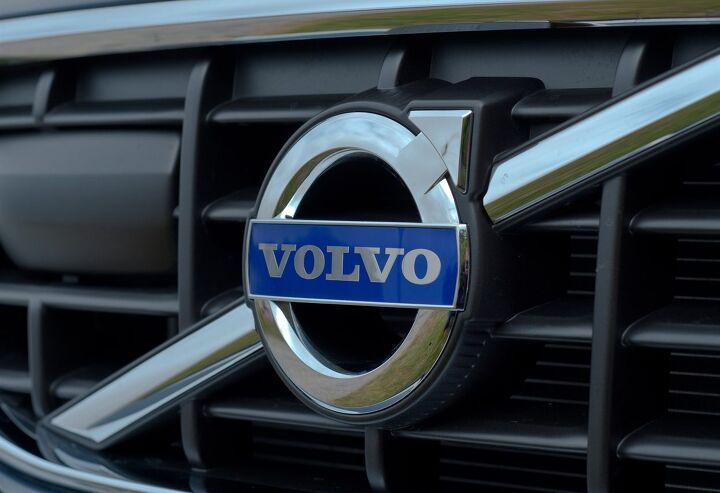
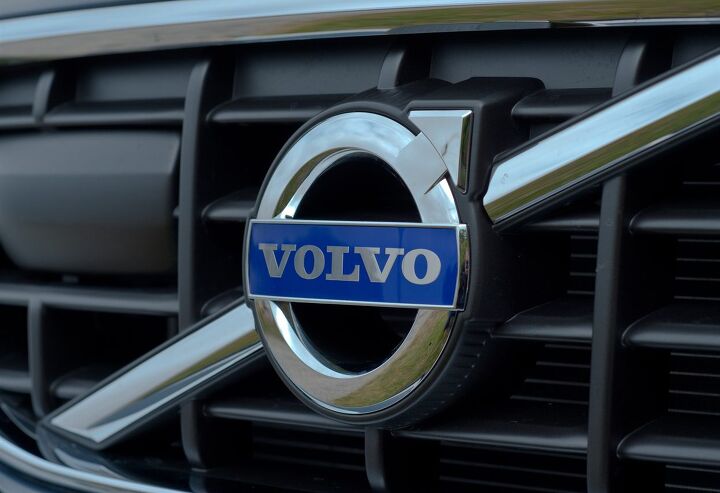

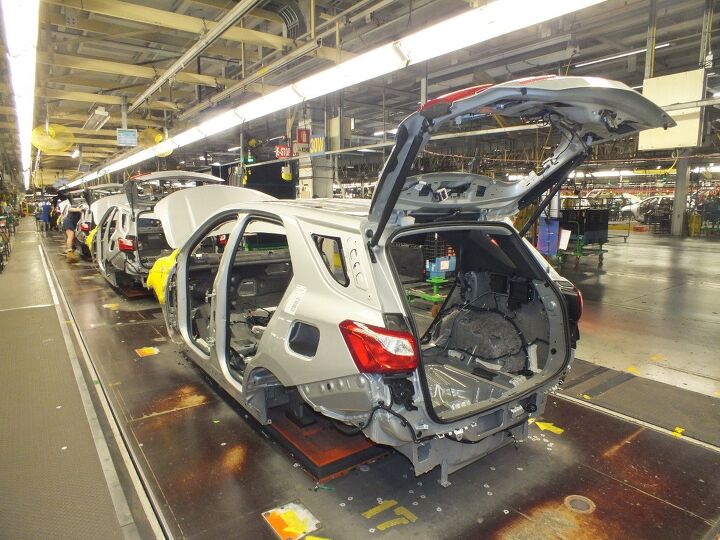
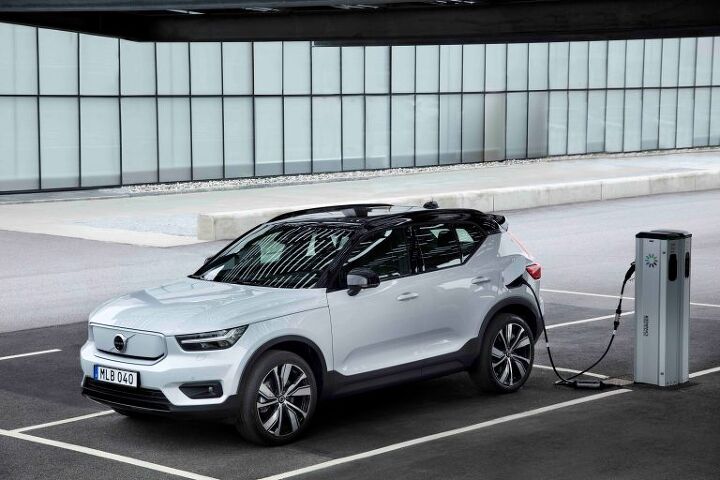
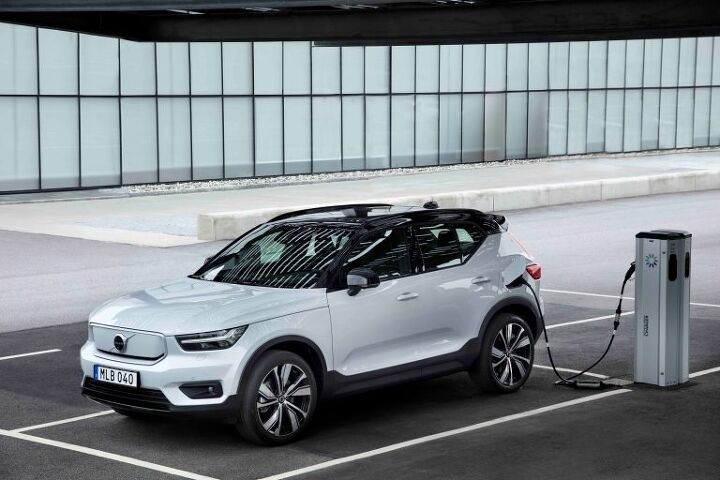















Recent Comments